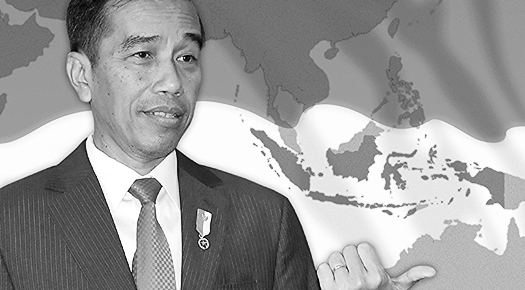
Photo Credits: NIKKEI Asian Review
Indonesia, Jakarta - Indonesia’s president, Joko Widodo, postponed the ratification of a controversial criminal code that would outlaw living together outside marriage, extramarital sex and insulting the president. A new law sparked a public outcry and the president decided the new criminal code should get a closer look given the backlash.
More than 300,000 people had signed a petition calling for Jokowi to step in and stop the bill from being passed. On Thursday, hundreds of students staged protests outside parliament against the proposed changes to the criminal code, which even includes a three-year prison term for black magic.
“I have ordered the law and human rights minister to convey this decision to parliament, to delay the confirmation of the criminal code bill,” the president, better known as Jokowi, told a televised news conference. He said that he decided the bill needed further review after taking into account input from various groups who objected to parts of it.
The mooted changes could affect millions in the world's biggest Muslim majority country, including gay and heterosexual couples who might face jail for having sex outside wedlock, or having an affair. People who have pre-marital or extramarital sex could face between six months and one year in jail, as well as fines, under the mooted changes. There were also penalties for anyone "showing or offering" contraception to minors under 18. Also the changes could affect tourists and on Friday, the Australian embassy in Jakarta issued a fresh travel advisory for Indonesia, warning that the legislation could put unmarried foreign tourists in the crosshairs.
"After hearing from various groups with objections to aspects of the law, I've decided that some of it needs further deliberation," the recently re-elected Joko Widodo said in a televised press briefing.
"The justice minister has been told to convey my views to parliament and that ratification of the criminal code should be postponed and not passed" in the current session, he added.
Indonesia’s criminal code stretches back to the Dutch colonial era and it has been debated for decades and appeared set to pass in 2018 before it fizzled.
A renewed push this year, backed by conservative Islamic groups, was met with a tidal wave of criticism from rights groups and ordinary citizens furious over what many saw as a draconian law that invaded the bedrooms of a nation with some 260 million people - the fourth most populous on Earth.
Some provinces in Indonesia already impose Islamic law, and whipping is a common punishment for a range of offences including gambling, drinking alcohol, and having gay or pre-marital sex. The proposals call for a wider interpretation of Indonesia’s blasphemy law, under which members of religious minority groups, including Christians and Buddhists, have been prosecuted in the past.
The Institute for Criminal Justice Reform, a non-government organization, welcomed the delay and urged the government to set up an expert panel to ensure a new draft is "in line with the principles of constitutional democracy" and has wide public support.
